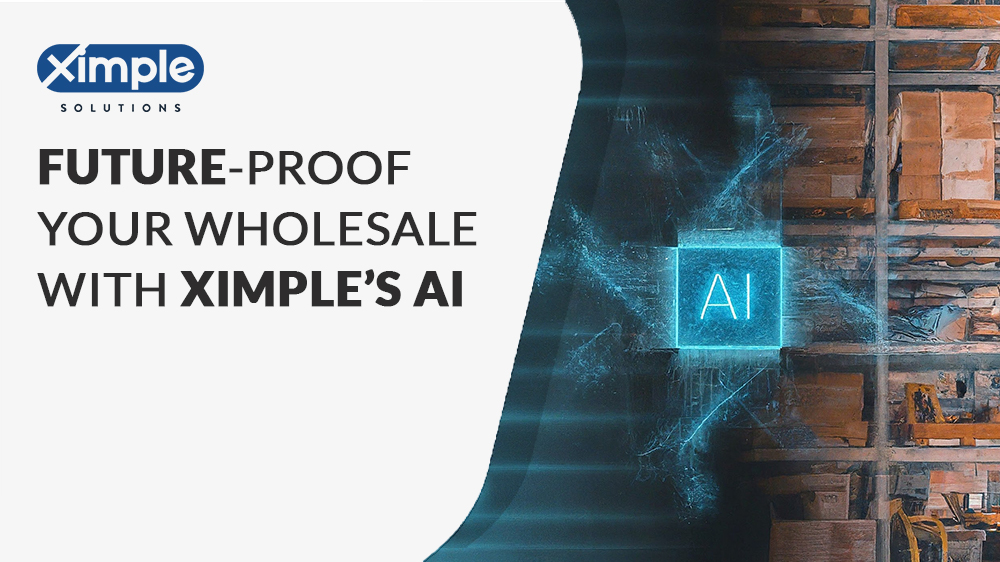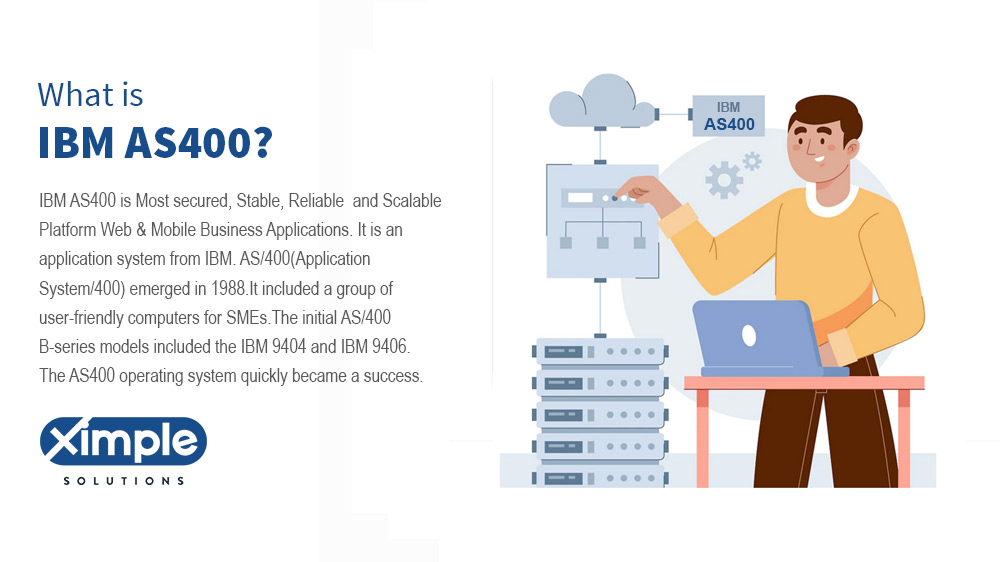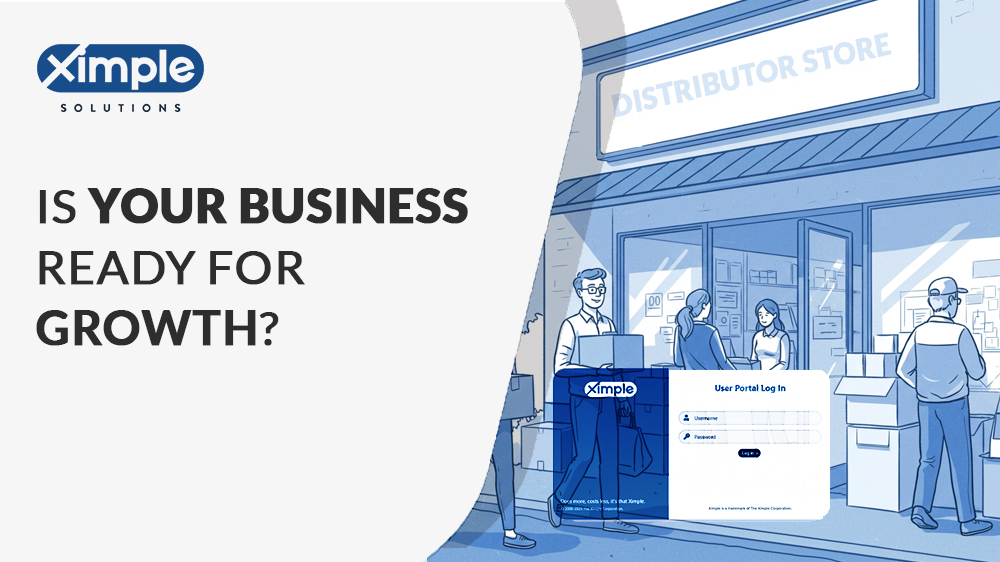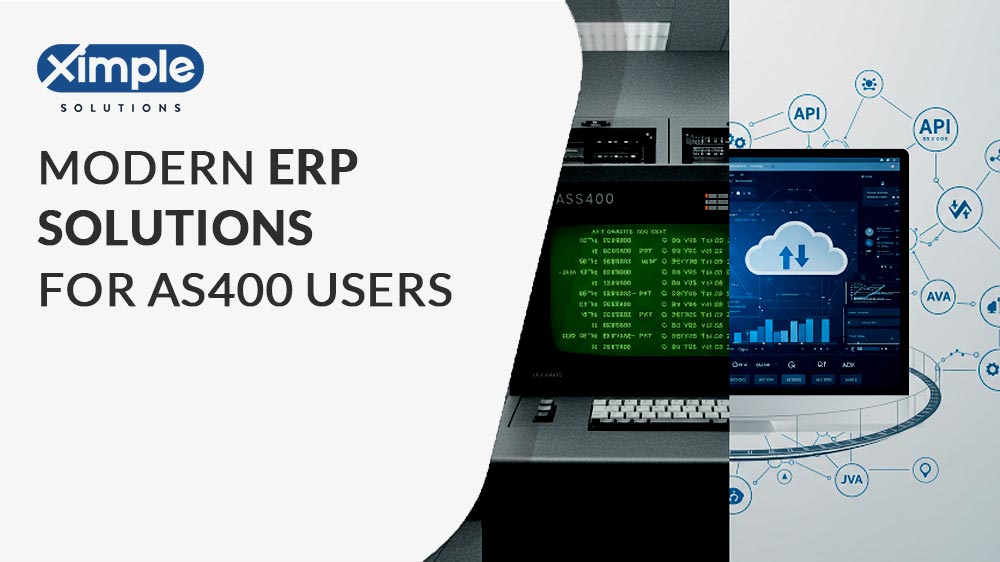Understanding AI and Its Impact on Wholesale Distribution: A Ximple Case Study

Introduction
Earlier this year, I had the privilege of meeting the CEO of a $2.5 billion wholesale distribution company. This company has experienced consistent double-digit growth for many decades. The CEO aims to double the company’s size to $5 billion within five years. He emphasized his open-minded approach to technology when I asked about the secret to his success. He likened it to the invention of bows, arrows, and cannons—those who innovate and adopt new technologies often conquer the most extensive territories. In business, it works the same way.
He explained that his company built an in-house IT ERP system because the large players in the market are slow to innovate. He appreciated Ximple for being a boutique firm, ready to invest in innovation and agile in our responses. He also emphasized the importance of AI, recognizing that many distributors are investing in AI and expressing his desire to be an early adopter of these technologies.
At Ximple, we share this forward-thinking vision and are heavily invested in technology. Here, I would like to share a case study highlighting the basics of AI and its future impact on wholesale distribution.
The Transformative Power of AI
- AI is a game-changing technology comparable to electricity or the internal combustion engine in its potential to reshape industries. AI enables businesses to operate more efficiently and scale their operations rapidly.
- AI-driven companies often outpace traditional ones because digital models can scale faster and further than conventional, people-dependent models. These digital models improve as more data and users are added, creating new growth opportunities.

The Value of AI: A Ximple AI Case Study
At Ximple, we are confident in adding 1% profitability to your business. For instance, if your company generates $100 million in sales, our AI solutions can help you achieve an additional $1 million in profitability.
Recently, we completed a free analysis for a wholesale distribution company with over $700 million in sales. Our findings were eye-opening:
- The company was missing out on over $6 million in profitability opportunities.
- A 5-10% sales increase opportunity had not been tapped into.
These results underscore AI’s significant impact on profitability and sales growth.
AI in the Distribution Industry
AI’s impact is particularly significant for distributors for several reasons:
- Data Utilization: Distributors possess vast amounts of data and perform repetitive tasks, making them ideal candidates for AI applications.
- Data Privacy: Unlike highly regulated industries, the distribution sector faces fewer privacy concerns.
- Technological Advancement: The distribution industry has seen limited technological advancement, necessitating a significant leap forward.
AI is incredibly impactful in marketing and sales, areas ripe for innovation. Digital marketplaces and AI-driven distributors pose a serious challenge to traditional B2B businesses.
What Is AI and How Does It Work?
At its core, AI refers to any machine-based intelligence. Recent advances in computing power, data storage, and programming techniques have turned AI into a multi-trillion-dollar industry.
AI involves a collection of tools and technologies that enable machines to think and learn like humans. AI models, or algorithms, identify patterns in data and improve over time as they process more information.
How AI Models Are Built
AI solutions like email spam filters and GPS navigation optimizes business processes using machine learning models to identify patterns in data. These models improve as they are exposed to more data, improving their ability to process information and make accurate predictions.
AI models undergo training, which can be supervised or unsupervised. Supervised learning uses labeled data to make predictions, while unsupervised learning identifies patterns in unlabeled data.
Deep Learning and Neural Networks
Deep learning, a subset of machine learning, uses artificial neural networks that operate on multiple layers, similar to the human brain. Deep learning models improve exponentially with more data, enabling complex tasks like predicting customer behavior, handling stock trades, analyzing medical images, and assessing customer sentiment.
The Importance of Data
AI solutions require large, continuously updated datasets to improve accuracy. High-quality data is crucial for reliable results. Deep learning models can achieve high accuracy even with noisy or poor-quality data.
B2B vs. B2C Data
For B2B distributors, data is often siloed across multiple systems, limiting its usefulness. Aggregating all data into one place allows comprehensive analysis, providing a complete view of the customer and unifying sales channels.
Embracing AI Early
Early AI adopters have a significant advantage over their competitors. Distributors can use AI to identify sales opportunities, predict reorder timings, and offer product recommendations, driving a 5-10% increase in sales.
The Key to Employee Adoption
AI aims to enhance employee effectiveness. The biggest barrier to AI adoption is culture; training is crucial for fostering an AI-friendly environment. Ensure your AI vendor provides adequate training to help employees quickly adapt and improve the customer experience.
Conclusion:
By understanding and leveraging AI, businesses can transform their operations, meet evolving customer expectations, and secure a sustainable competitive advantage. At Ximple, we are committed to being at the forefront of this technological revolution, helping our distributors thrive in an increasingly digital world. With AI, we can unlock new levels of efficiency, innovation, and growth, ensuring that our partners are well-equipped to lead the market.
Suppose you are in the wholesale distribution business and are tired of large ERP providers that are slow to adopt new technologies or explore ERP-agnostic AI solutions to boost sales and profitability. In that case, we invite you to reach out to us. We are confident in our solution and ready to invest upfront by offering a Free Analysis to improve your KPIs.
Contact us at Ximple today to learn how we can help you achieve your business goals and drive your company toward tremendous success.
Related blog
The Critical Role of Data in ERP Systems






